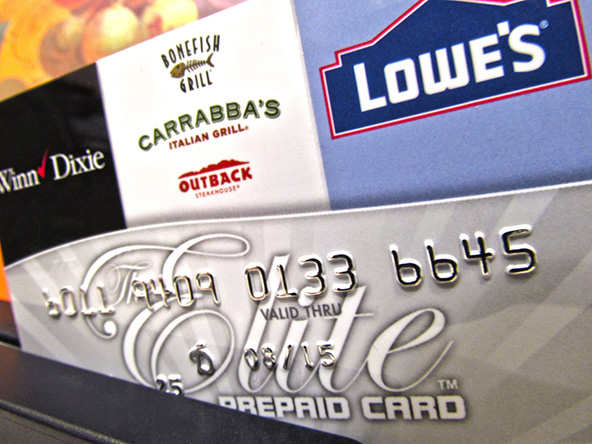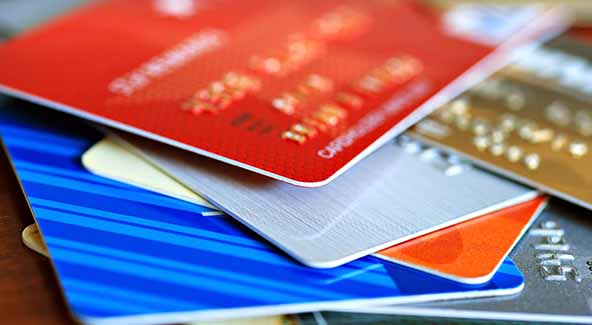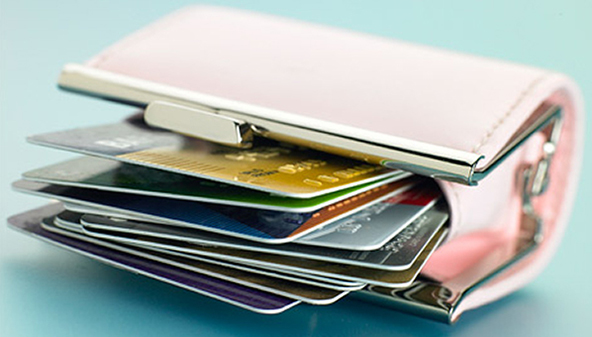How Credit, Debit, and Prepaid Cards Measure Up

I’ve tried on multiple occasions before to pin down the most important differences among the three major payment card types and to present them in a clear way, but I was never entirely satisfied with my success. And there is really no reason that this should be so when these differences are for the most part so pronounced.
So in this post I will give it another go and this time I will try a different approach. I will put the three payment products side by side and will focus only on the features which I believe are the most important for consumers, leaving out anything a cardholder doesn’t really need to know. I hope that this will do the trick.
A Brief Guide to Credit, Debit, and Prepaid Cards
Here is my three-way comparison of these card types.
|
?á |
Credit Cards |
Debit Cards |
Prepaid Cards |
|
What is it? |
Credit card is a line of credit, extended to you by the card’s issuer.?á So it is a loan. |
Debit card is an extension of your checking account, giving you another way to access your own money. |
A prepaid card gives you access to money that you or someone else has deposited (“loaded”) into an account with the card’s issuer. |
|
How does it work? |
Just as with any other loan, when you use it, you have to pay it back. If you do so within the “grace period” (typically 20 – 25 days after the end of the monthly cycle), the loan is free; otherwise you pay an interest on the outstanding balance (unless you have a zero-percent introductory APR). |
When you make a payment with your debit card, the transaction amount is deducted from your available balance. There is no interest to be paid, because you are using your own money. Penalty fees and interest can be applied on any amount that exceeds your available balance (see overdraft below). |
Similar to debit cards, when you use your prepaid card, the sales amount is deducted from the available balance. However, prepaid cards offer no overdraft option, so you cannot spend beyond your available credit. |
|
Is overdraft available? |
Your credit card issuer can only allow you to go over your credit limit, if you have explicitly agreed to it. Otherwise, the transaction should be rejected. Overdraft protection is provided for a fee and you may have to pay interest on the overdrawn amount. |
Similarly to credit cards, debit overdraft is only available if you have opted into it. Penalty fees and interest charges on the overdrawn balance are also applicable. Be advised that overdraft protection on your checking account is separate from the one on the linked debit card and is not optional. |
Overdraft is not available on any of the prepaid card types. |
|
Do you pay interest, and when? |
You only pay interest on the outstanding balance after the expiration of any introductory interest-free period and afterward – after the expiration of the grace period at the end of the monthly cycle. |
No interest is charged, with the exception of any overdraft-related one. |
No interest is charged. |
|
What fees do you pay? |
There are various fees such as late payment fees, overdraft fees, cash advance fees, foreign exchange charges, duplicate statement fees. All of them must be fully disclosed. |
Overdraft fees may be applicable, as explained above. There may also be fees related to the linked checking account. |
A wide range of fees may be charged, such as to purchase the card, monthly fees, per-transaction fees, ATM withdrawal fees, balance inquiry fees and many others. |
|
What is your liability for unauthorized transactions? |
Your liability for losses resulting from lost and stolen cards is limited to $50, however your card issuer will probably not hold you liable for any amount in such circumstances. |
Your liability for unauthorized debit card transactions is also limited to $50, but only if you report the incident within two days. Otherwise, your liability grows to $500 or more. |
Payroll prepaid cards have the same liability rules as debit cards. All other prepaid cards have no liability limits at all so you will bear the entire loss, unless the issuer’s own policy provides you with some form of protection. |
|
What disclosures should be provided? |
Credit card issuers are under strict requirements to provide detailed disclosures, including the annual percentage rate (APR), variable rate, penalty rate, fees and other transaction charges. |
Debit card issuers are required to disclose any fees associated with the usage of their cards, as well as its error resolution process. |
Payroll card issuers are under the same disclosure requirements as debit issuers. General-purpose card issuers, however, are not. Gift cards must disclose any dormancy fees, expiration dates, and any other associated fees. |
|
Do you get a statement? |
Credit card statements are required for each billing cycle where the account balance is $1 or more or where interest has been charged. |
Statements are required for each cycle in which there has been a transaction. Otherwise, a statement must be provided quarterly. |
Payroll card issuers must provide a periodic statement or an account balance by telephone and electronic transaction history. There are no requirements for the other prepaid cards. |
|
How can changes in the terms be made? |
Any change in the APR or any of the fees must be preceded by a notice 45 days in advance. |
Changes to any fees or liability limits require a 21-day advanced notice. |
Payroll cards are under the same requirements as debit. There are no similar requirements for the other prepaid card types. |
|
Does using the card affect my credit score? |
Yes, credit card usage does affect your credit score. |
No, debit card usage has no bearing on your credit score. |
No, prepaid cards do not affect your credit score. |
The Takeaway
Several other categories could be added to the table above. For example, I could compare the application processes and the kind of information that is required from the applicants or I could look into where and how each of these types of cards is accepted. But I think that these ten categories capture the essence of each of the three payment cards and adding anything else would have only distracted us from our objective. If you believe that I’ve left out something important, please let me know in the comments below.
But in conclusion I’m tempted to offer a summary of my comparison. Credit cards let you spend someone else’s money; debit cards give you access to your own checking account; prepaid cards draw from the money you deposited with the card’s issuer.
Image credit: Reward Card Solutions.



Thanks for the post, even my daughter found it interesting. She picked up a lot of pieces and she will need to understand the difference between the various payment products before she starts using them.
Great chart!!!!
Here is a good addition with fees: https://www.kaiku.com/card/compare_us & https://www.kaiku.com/card/compare_us